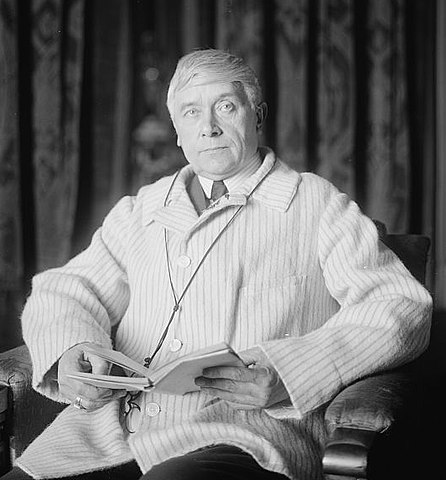In 1911, Maurice Maeterlinck received the Nobel Prize in Literature. He received this prestigious honor primarily for his remarkable contributions to the literary world, particularly his innovative approach to drama and his exploration of philosophical and mystical themes.

Maurice Maeterlinck, a Belgian playwright, poet, and essayist, was a prominent figure of the Symbolist movement. His works, characterized by their symbolic and evocative language, delved into existential questions, the mysteries of life, and the complexities of human nature.
Maeterlinck’s most renowned play, “The Blue Bird” (1908), brought him international acclaim and became one of his most influential works. It depicted a search for happiness and spiritual awakening, exploring themes of compassion, hope, and the significance of the human soul. Maeterlinck’s writing style, marked by its poetic and dreamlike qualities, captivated readers and pushed the boundaries of theatrical conventions.
The Nobel Prize in Literature is awarded to an author, regardless of nationality, who has produced the most outstanding work of an idealistic tendency in the field of literature. The Swedish Academy, responsible for selecting the Nobel laureates in literature, recognized Maeterlinck’s profound impact on the Symbolist movement, his philosophical insights, and his ability to create mesmerizing and thought-provoking works.
The Nobel Prize in Literature was bestowed upon Maurice Maeterlinck as a recognition of his exceptional talent, his visionary approach to drama, and his significant contributions to the literary world by exploring the depths of human existence and the mysteries of life.




